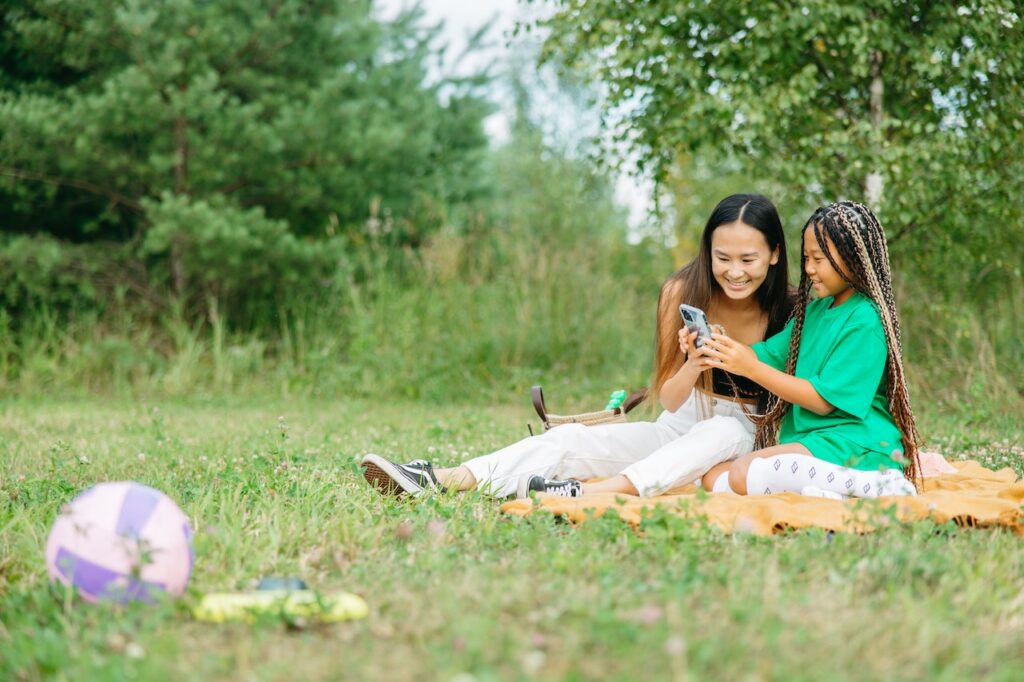When your children reach a certain age, they will need their own space to develop the ability to think independently. It is a natural development step and children really need privacy.
The question is, at what age should you give your child privacy and in this digital age, is it dangerous? Because in the real world, separating ourselves from our children and leaving them with strangers is unthinkable, but in the virtual world, that barrier is not so clear.
This article will cover the factors to consider and how to balance privacy and safety for children.
The Importance of Privacy for Children

In a part of growing up, your children may desire more privacy. In fact, privacy is essential for your children to gain autonomy and individuality. Giving your children more and more freedom is a key part of helping them grow up and develop the skills they need to be functioning adults.
As our children grow up, they seek more responsibility and independence. They may want you to respect their opinions and desires and to be thought of as mature.
There is no denying that privacy is essential for children if you want them to solve problems on their own and not depend on others.
Factors to Consider When Allowing Privacy for Children

As parents, we always want children to develop to the fullest. However, we also want to protect children from harm from the surrounding world because they are still vulnerable.
When considering allowing privacy for your children, we should pay more attention to the following factors:
- Age and maturity of the child: By age six, most children understand the concept of privacy, and you may allow them some space. But there are other children who still want you around, so you can see if your child wants privacy and adjust accordingly.
The older children get, the more they may prefer to be alone, so you could give them more privacy if they are uncomfortable with the lack of privacy.
- Cultural and family values: Does your family have a tradition of trusting each other? You see that your child has a good perception of the problem and develops the right perspective. If so, children will be encouraged to develop freely and can have more privacy.
- Legal considerations: There are some critical laws protecting children’s right to privacy. You need to allow the privacy of your child according to the regulations.
- Development of digital technology: As technology and social networks develop, children’s personal information is more likely to be leaked and spread widely which can affect children’s mental health. Parents need to be more careful when giving their children too much time alone. Educating children about registering or disclosing personal information online requires great care.
How to Talk to Your Child About Privacy

Parents are encouraged to start having conversations about privacy with children at a young age.
Tell your children not to share personal information online without knowing the website’s reliability
Your children should be aware that if they disclosed something online, it could be shared with a much larger audience. So, it is important to note what is or is not appropriate to share online.
You can start the conversation by telling your child the reasons behind the boundaries you set. For example, when you ask your child not to share passwords or not to send messages to strangers online, also take a few minutes to explain why such behaviors could pose a risk.
Also, remind your children to check with you or other adults if they are in doubt about sharing something online. Welcome questions from your child so that your child is always feeling ready to share anything with you.
Balancing Privacy and Safety

A child’s demand for privacy signals their increasing independence, but you cannot tell what your child is doing behind the door of his bedroom, and you cannot supervise him 24/7. Therefore, balancing privacy and safety is a must.
The role of safety in setting boundaries
To determine how much privacy and freedom your teen is ready for, consider how responsible they are with their obligations.
You may leave your children alone if they keep up good grades at school. Your children also need to communicate with you regularly and show that they are using their privacy responsibly.
Guidelines for balancing safety and privacy
It is just as important to mentor and guide your children’s online safety to make sure they know what behavior is safe and appropriate. And they need to understand the potential risks of the spreading content they post online.
Talking to your child about safety and privacy
This should include open and ongoing conversations with your children. There may be disagreements, but through honest and respectful dialogue, we can help kids recognize that our involvement in their lives is done out of love and concern for their well-being.
Conclusion
There is no denying that privacy is beneficial for children’s development. But your children are more vulnerable in the online space nowadays.
So, it is important to balance privacy and safety to help your children have room for growth. We should be focusing on better-educating children in media literacy.
FAQ
Can giving my child too much privacy be harmful?
Yes, it can be. Too much privacy without proper supervision can lead to accessing bad websites and being attacked by bad guys on personal honor and dignity. Schools and parents must work together to teach children how to protect their privacy online.
What are some signs that my child may need more privacy?
Children reach a certain age when they can take care of themselves, such as bathing, dressing, and feeding themselves.
Your children can solve small problems that arise every day such as closing the door, changing the blanket, and being alone for a few hours without your help. Your child can sleep in his or her own room and prefer to sleep separately instead of sharing the room with her parents.
Is there a legal age for children to have privacy?
There is no specific legal age for children to have the right to privacy. But there are important laws protecting children’s right to privacy.
Children need privacy but also need parental supervision to protect them against adverse situations that they cannot handle on their own. Parents need to keep a close eye on their children so they can intervene in time.







